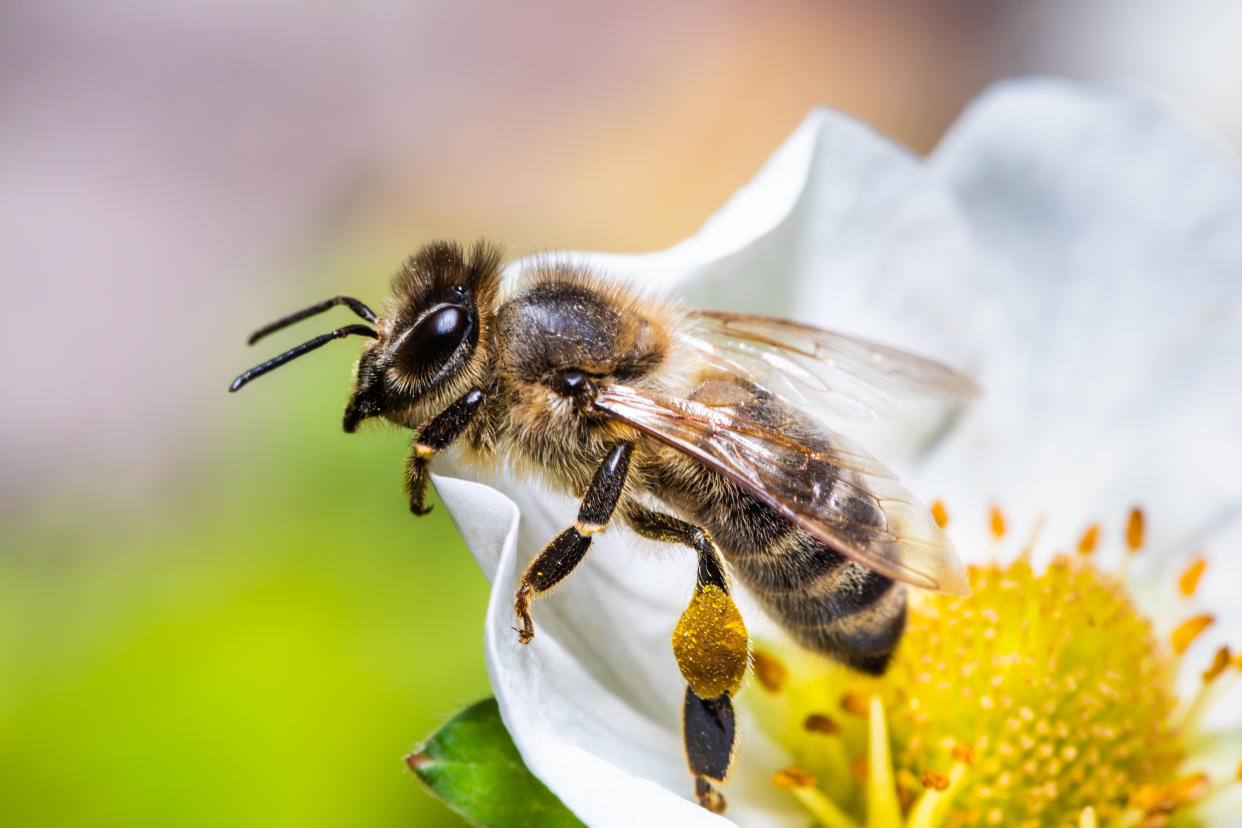Fears that ‘devastating’ bee-killing pesticide may be approved in UK

A pesticide which has ‘devastating’ effects on bees could be approved in Britain, environmental campaigners have warned.
Speaking to The Guardian, sources inside the Department for Environment, Food and Rural Affairs (Defra) have suggested that an emergency authorisation of Cruiser SB is likely to be announced.
The sugar beet industry has applied for an emergency use of the pesticide to protect beets from a disease called ‘virus yellows’.
The Government had issued an emergency authorisation in January, but conditions were not met, so use of the pesticide has not gone ahead in 2021, the Government said in a statement.
Cruiser SB is a neonicotinoid pesticide, and is illegal for use in the EU and Britain without special authorisation - and lethal to bees.
Read more: Melting snow in Himalayas drives growth of green sea slime visible from space
The pesticide - also known as thiamethoxam - is considered particularly dangerous because it can linger in soil.
Joan Edwards, the director of policy and public affairs at the Wildlife Trusts, said: “Less than a month after the government passed its flagship Environment Act, legally committing to halt the decline of species, it would be unthinkable that they are even considering betraying that promise by authorising the use of an environmentally devastating chemical against the advice of the government’s Health and Safety Executive and the Expert Committee on Pesticides.”
“The Wildlife Trusts oppose the authorisation of thiamethoxam because it has a devastating effect on wildlife.
“When a seed dressing of the neonicotinoid pesticide is applied to sugar beet crop only 5% of the pesticide goes where it is targeted, in the crop.
“The rest ends up accumulating in the soil, from where it can be absorbed by the roots of wildflowers and hedgerow plants, or can leach into rivers and streams where it could harm over 3,800 invertebrate species, which spend at least part of their life cycle in freshwater.”
Read more: A 1988 warning about climate change was mostly right
Research this year suggested that bees which are exposed to just one dose of pesticide have fewer offspring and can take generations to recover.
Researchers analysed the effects of imidacloprid, a neonicotinoid pesticide, on bees.
Pesticides have been linked to population decline in bees, but researchers have never analysed the generational effects of the chemicals.
Clara Stuligross and Neal M. Williams of the University of California exposed bees to the chemical in a controlled setting.
The researchers found that bee larvae exposed to the chemical produced 20% fewer offspring after they became adults.
They also found that multiple exposures led to even fewer offspring.
Read more: Why economists worry that reversing climate change is hopeless
Those that were exposed as larvae, for example, and were then exposed again as adults had 44% fewer offspring, which, the researchers note, represents approximately 10 fewer offspring out of a normal group of 24.
The researchers captured a large number of blue orchard bees, a type that is similar to the honeybee but has different coloring and collects pollen on its belly instead of its legs.
It is important to farmers who grow tree-bearing crops, such as almonds, peaches, apples and cherries. The captured bees were separated into small groups, each of which were exposed to imidacloprid in different ways.
The findings show that use of imidacloprid on agricultural crops (which is banned in Europe but not the U.S.) can lead to dramatic reductions in bee populations due to reductions in fertility rates.
Greenpeace has warned that loopholes in EU law have allowed some farmers to continue using neonicotinoids after the ban.
The researchers write, ‘We reveal that pesticide exposure, both directly to foraging bees and via carryover effects from past exposure, dramatically reduced bee reproduction, which reduced population growth. Carryover effects reduced bee reproduction by 20% beyond current impacts on foraging bees, exacerbating the negative impact on population growth rates.
‘This indicates that bees may require multiple generations to recover from a single pesticide exposure; thus, carryover effects must be considered in risk assessment and conservation management.
Watch: Study finds common chemicals can harm brain development


